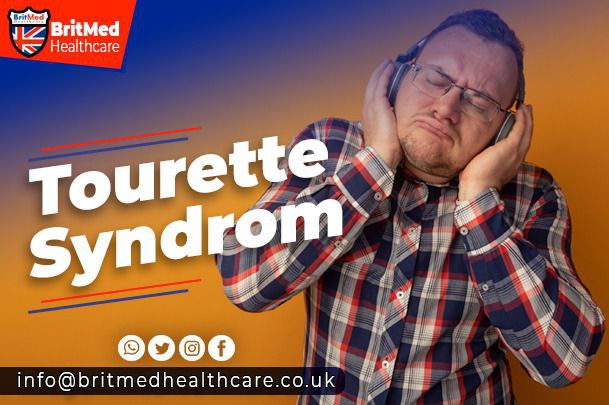Various Forms of Tourette Syndrome
What Causes It, Signs It, and How to Treat It
Common neurological disorders include Tourette’s syndrome, which manifests as vocalizations and repetitive, stereotyped motions that are not controlled by the patient. Children under the age of puberty often experience this disease. The majority of individuals report a significant amelioration of symptoms upon entering adulthood, and the symptoms tend to get better with time.
Involuntary and repeated vocalizations and movements characterize Tourette’s Syndrome, a neurological condition. Simple or complex movements and noises, along with additional symptoms like anxiety, sadness, or obsessive- compulsive disorder, are not uncommon.
Tourette syndromes and their variations
Depending on how long and how severe the symptoms are, Tourette’s Syndrome can be categorized into several kinds. Of them, there are:
Temporary: Signs and symptoms disappear after a year or two.
Long-term: continuing for over a year
A simple symptom: is one that manifests itself in a single gesture or sound. Complex: conveyed by a variety of vocalizations and motions.
How Tourette’s Syndrome Occurs
We don’t yet know the exact source of this condition, but preliminary studies have pointed to a mix of environmental factors, genetics, and neurotransmitter abnormalities as possible culprits.
Things That Could Put You at Risk for Getting Tourette’s Syndrome
Some common things that can put you at risk for Tourette’s syndrome are:
The presence of other neurological disorders, a history of the problem in the
family, traumatic events during infancy, and genetic abnormalities are all risk factors.
Tourette syndrome-related tics
There is a wide range of severity and type of tics associated with Tourette’s syndrome. Some of the most typical output tics include:
-Tics including blinking, head nodding, or facial grimacing
-Complex motor tics involving several body parts
-Vocal tics (likewise sudden, repetitive, purposeless utter)
-Repetitions of words or phrases
Does Tourette’s Syndrome Constitute a Mental Disorder?
According to conventional wisdom, Tourette’s Syndrome does not constitute al mental disorder. This condition has nothing to do with mental health; it is a neurological ailment that disrupts brain chemicals.
Help for People with Tourette’s Syndrome
Possible therapies for Tourette’s syndrome include:
Medications that alleviate symptoms
One useful tool for symptom management is behavioral therapy. A healthy lifestyle, including regular exercise and stress management, can help alleviate symptoms.
Issues that can arise from Tourette syndrome
Potential side effects of Tourette’s Syndrome include:
-Problems with communication and relationships
-Isolation and retreat from social situations
– Obsessive-compulsive disorder
-Sleep disruptions
-Anxiety and sadness
Hashtags:
#TourettesSyndrome
#NeurologicalDisorde
r #InvoluntaryMovements
#Vocalizations
#Symptoms
#Treatment
#Complications
#MentalHealth
#Neurotransmitters
#BrainFunction
Additional Information:
For more articles visit Britmed Healthcare https://britmedhealthcare.co.uk/blog/
Do book a Consultation with Professor Ahmed El-Missiry https://www.nightingalehospital.co.uk/specialist/prof-ahmed-elmissiry/
You can also book on Top Doctors UK Contact us on WhatsApp 08009708017
Top Doctors: https://www.topdoctors.co.uk/doctor/ahmed-el-missiry
References:




